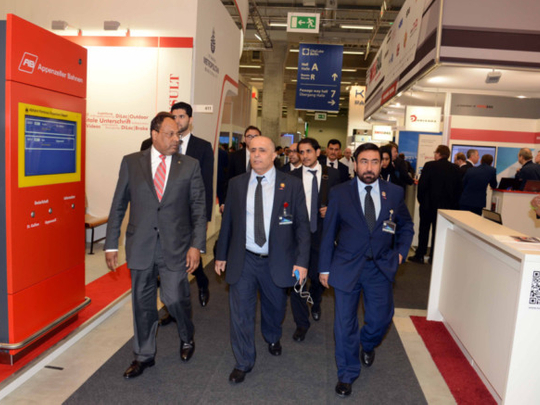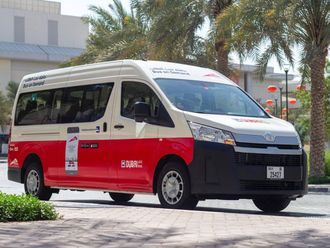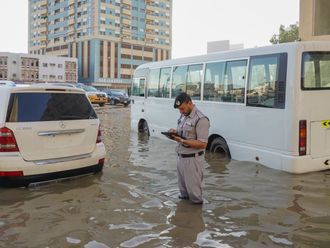
Dubai: Dubai will see development of 35 mega projects by 2020, which includes construction of the Dubai Canal, extension of Metro lines and expansion of Dubai Tram, the Roads and Transport Authority (RTA) has announced.
RTA will procure 39 new trains over the next few years, while expanding its road and bus networks, Mattar Al Tayer, Chairman of the Board and Executive Director of RTA, announced at the International Trade Fair for Transport Technology (InnoTrans 2014) in Berlin.
RTA, which has a major stand at InnoTrans, is part of 2,700 major organisations from 51 countries who are participating in the global event.
During the opening session of the Rail Leaders’ Summit, which was attended by presidents of firms and operators of rail systems and top executives of rail system manufacturers worldwide, Al Tayer said that the Government of Dubai, led by His Highness Shaikh Mohammad Bin Rashid Al Maktoum, Vice-President and Prime Minister of the UAE and Ruler of Dubai, has spent about Dh73 billion to upgrade the transportation infrastructure in Dubai since 2005.
Al Tayer revealed that there were more than 35 mega projects envisioned in the future plan of the RTA.
He added that RTA is focusing on improving the efficiency of the public transport system, and broadening the electronic service offering as well as smartphone applications.
“RTA will design and undertake transportation projects necessary for Expo 2020, including the extension of the Red Line of the Dubai Metro, upgrading roads and junctions surrounding and leading to the Expo site, and sourcing 39 additional trains up to 2020 in order to improve passenger services. The RTA is also planning to expand the bus network to cover 16 new districts, besides improving the service in 19 districts by 2020,” he explained.
Shedding light on the current infrastructure, he said Dubai currently has a rail network of 75km, comprising 47 stations, which is considered the longest driverless Metro line worldwide.
He also added that Dubai’s roads network expanded by 45 per cent, increasing from 8,715 lane-kilometre in 2005 to 12,545 lane-kilometre in 2013.
He said that the number of mass transit users soared from 112 million riders in 2005 to 446 million riders in 2013, witnessing a 300 per cent increase. The increase reflected the share of public transport means in the people’s mobility from 6 per cent in 2006 to 13 per cent by the end of last year.
He said that the Dubai Tram, which starts on November 11, will be the latest public transport offering, alongside the Metro, buses, and marine services.
The first tram project outside Europe is powered by ground electric cables and extends about 10.6km in phase one. It covers 11 stations and with links to two Dubai Metro stations in a bid to enhance the integration of mass transit modes.
The tram is expected to lift about 27,000 riders per day this year, and the ridership is anticipated to grow to as much as 66,000 riders per day by 2020.
Al Tayer said that Phase 2 and 3 of the Tram project are currently under study.












